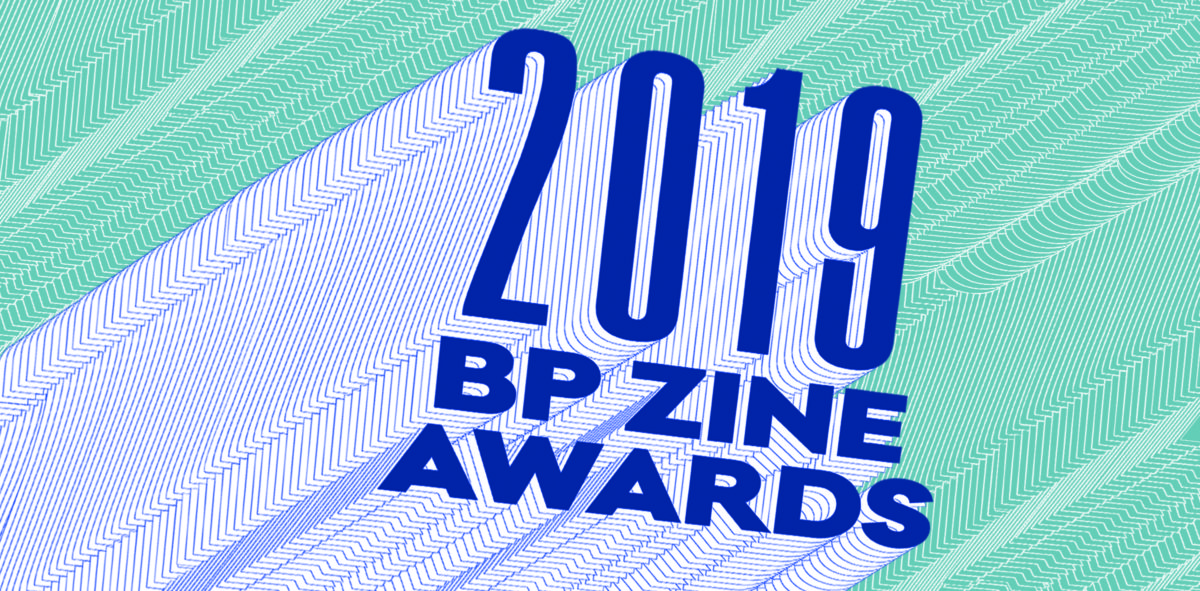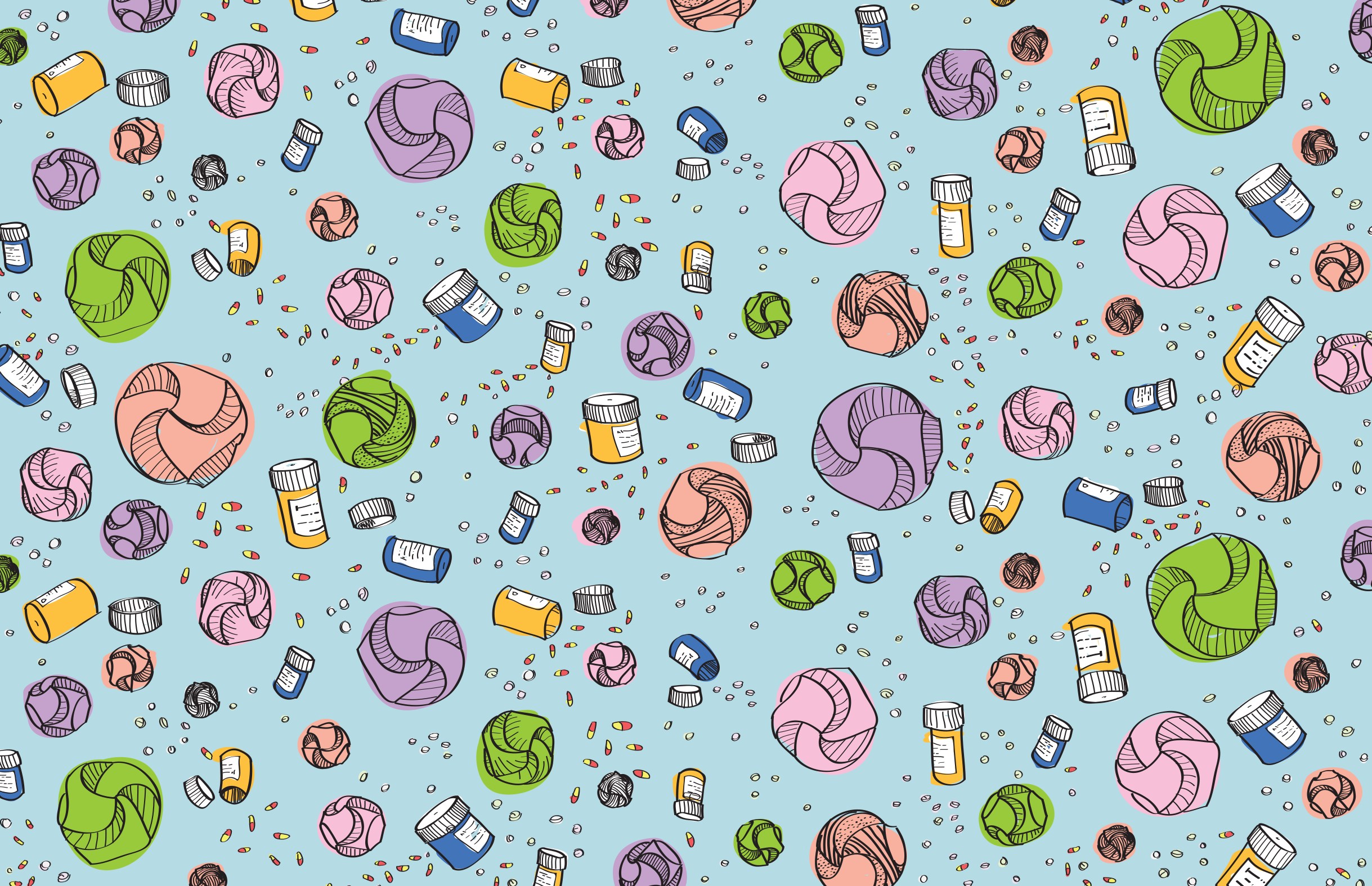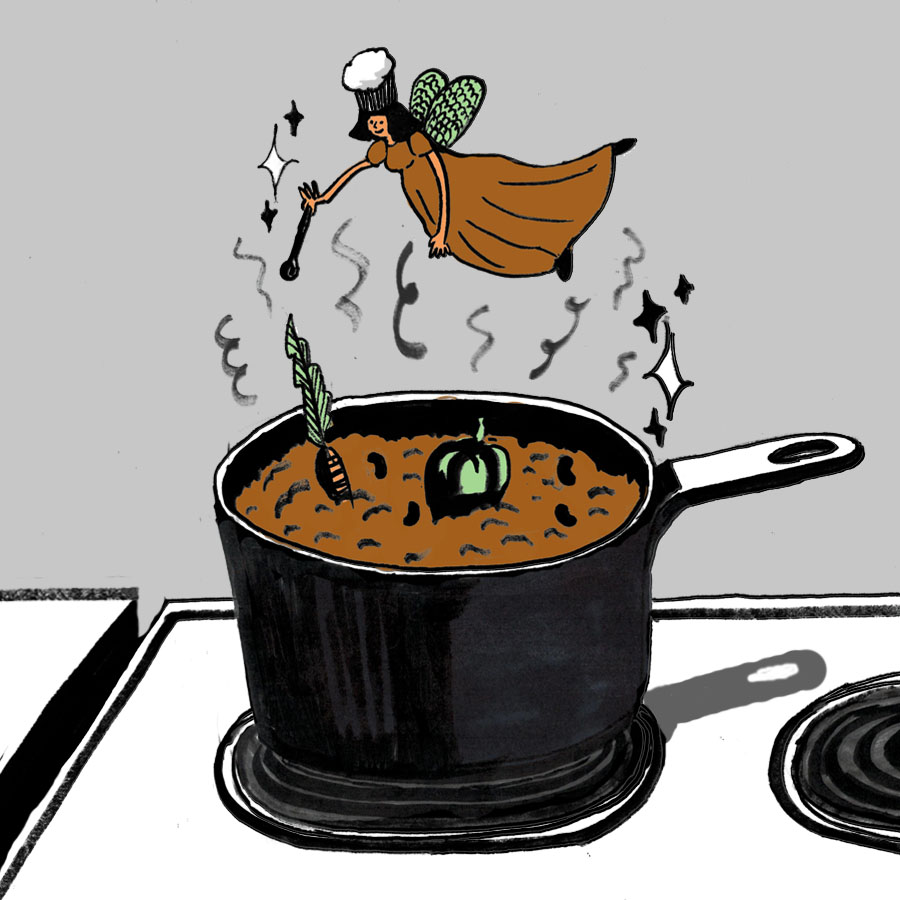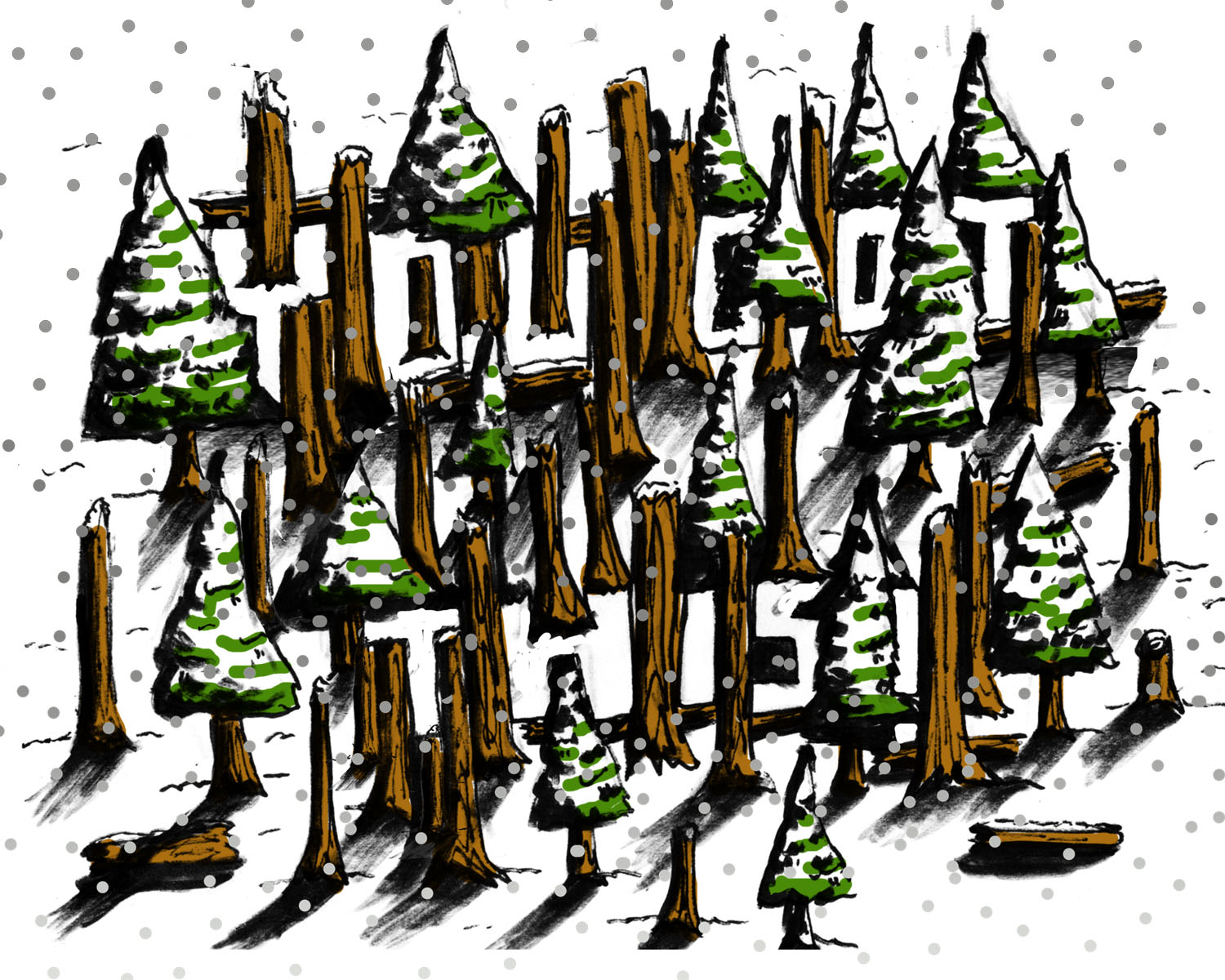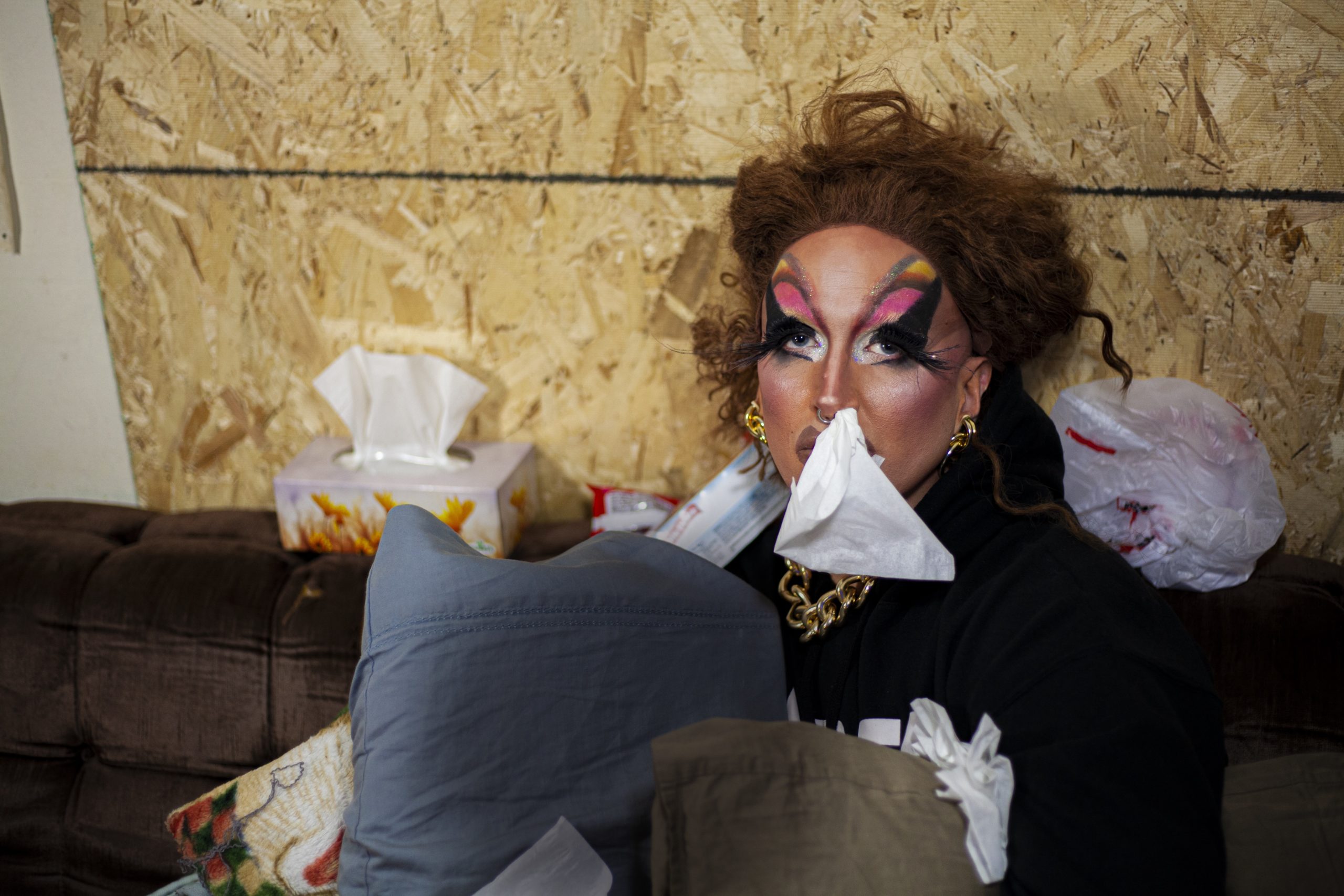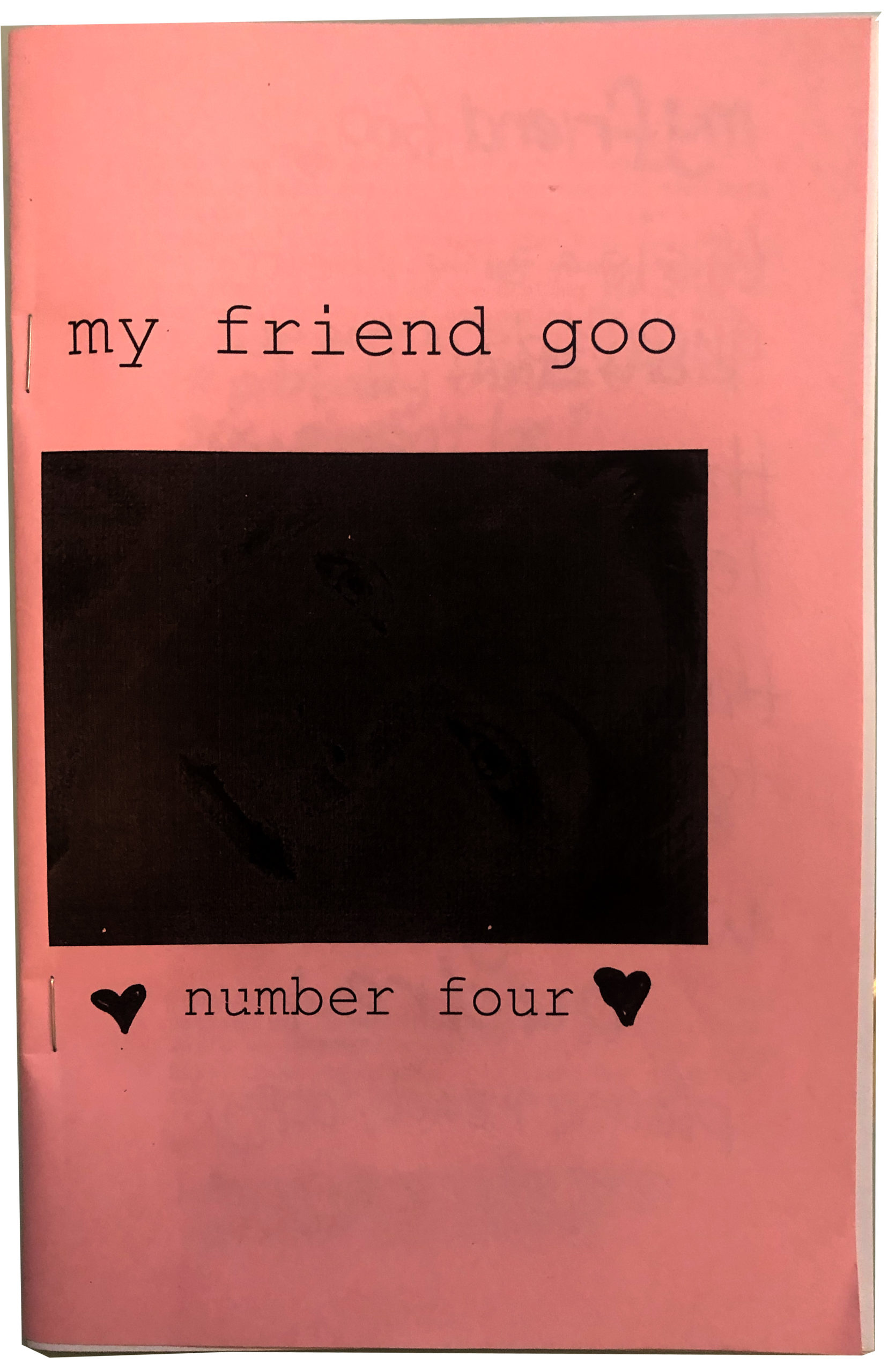 My Friend Goo #4
My Friend Goo #4
Perzine, Audrey, 24 pgs,
[email protected]
“His body slouches into the space where I once existed,” Audrey writes, recalling an experience of sexual assault. Thus begins the fourth edition of My Friend Goo, followed by the writer’s escape from that violent space, the genesis of her pain. True to its inscription, My Friend Goo is an ongoing “zine about queer kids in the 90s,” and Audrey’s assault stretches out and touches every subsequent relationship. She compares this ghost to Laura Palmer’s demon Bob in Twin Peaks, who also returns incessantly after the initial violation. Trauma haunts.
The text alternates between typewritten and handwritten, alluding to a switch between the material and immaterial, the conscious and unconscious, her physical environment and the internal thoughts that respond. The handwritten bits capture the questions and disbelief of the particular moment, a non-linear sense of confusion and simultaneity highlighted by the very human squiggles of her pen.
Audrey dedicates this issue to music. Moments of listening bookend the snapshots of romantic, sexual, and abusive relationships. Audrey stops to find solace through a lullaby by the Cure, or an “All Apologies” cover by Sinead O’Connor. Lyrics express those difficult feelings that lack a more direct verbal container. The relationships at hand may be labyrinthine, mutating as quickly as litmus paper dipped in new chemicals. But music has a way of cutting through the maze and opening a path towards healing.
“This is how I began to find myself again,” Audrey writes in a moment of heightened self-awareness. The title references the cool alter-ego out of a Sonic Youth song. The zine itself becomes the same, a semi-real space where distance from the proverbial other helps recollect what is lost. (Jennavieve McClelland)

